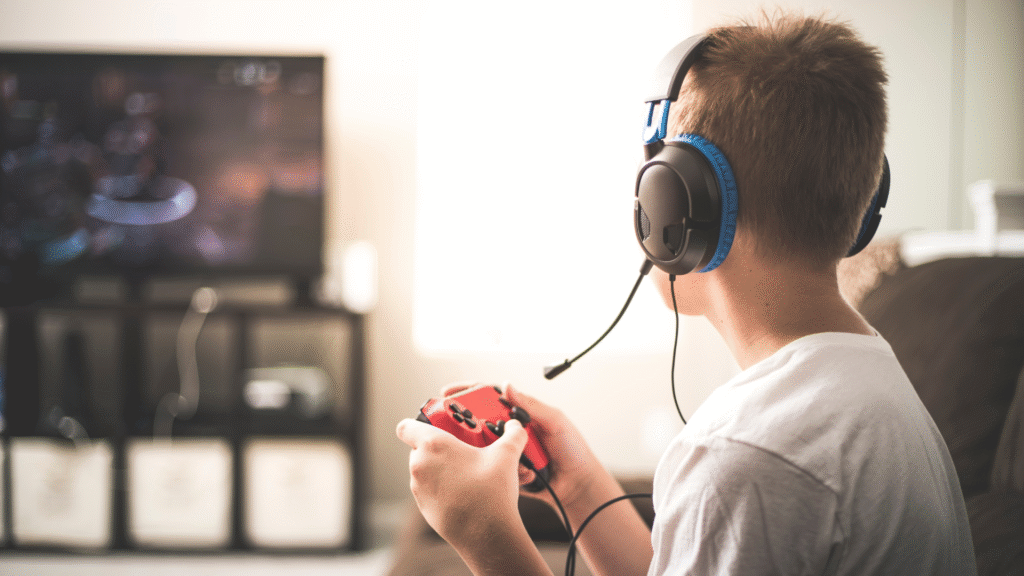

The gaming industry has been on everyone’s minds recently, with policymakers and regulators becoming increasingly critical in shaping the sectoral landscape. Video games are a key part of our daily lives and almost 3 billion people across all age groups actively play games,[1] with the average gamer being 34 years old.[2] As a result, the sector has been under the close eye of policymakers – especially in the European Union. This poses the question of whether it is time to introduce a targeted regulatory framework for video games.
The idea of such a framework has been evolving for a long time through other major pieces of EU legislation affecting video games, from the Digital Services Act (DSA) to the ongoing debate regarding the Proposal on Child Sexual Abuse Material (CSAM). While these and other regulatory measures affect certain pieces of gaming, there is no one harmonised piece of legislation that addresses gaming’s issues in a horizontal manner.
The EU’s position
The European Parliament has raised this point through its Report on Consumer Protection in Video Games, which explicitly called for unified rules across the bloc that would protect players from what Members of the European Parliament (MEPs) view as manipulative behaviours and addiction. Specifically, MEPs noted the issues regarding child protection; parents and guardians should have a clear overview of what their children are playing, whether the content the game provides is adequate for their age, and what minors are spending money on.
In-game purchases are a particularly important element of the report. ‘Loot boxes’, where you pay to receive random in-game items, have represented a complex area across the EU, with both policymakers and regulators divided on whether to label such systems as gambling. Two EU Member States – the Netherlands and Belgium – have explicitly outlawed loot boxes on these grounds. Others, such as Poland or France, do not view loot boxes as gambling but as a matter of consumer protection.
Regulatory harmonisation in the internal market is a key task for the European Commission, and the European Parliament has not forgotten about this; it directly called upon the Commission to take regulatory measures to ensure a harmonised European approach to loot boxes. This was a clear signal for a new legislative framework that will address one of the major contention points on online gaming in Europe.
But alas, this is not the end. Gold farming (selling in-game items for real money) and addiction are further issues highlighted in Parliament’s report, with claims that these infringe on human rights, mental health, and education – all areas that constitute a rationale for the EU to intervene with new legislation.
A complex world
As all gamers know, video games are not that straightforward (you can’t just pause). Any new regulation will need to consider a multitude of evolving factors and how they influence the ecosystem. From the rise of virtual worlds (metaverses), AI, and digital identity to network infrastructure (having a high ping in first-person shooters is especially bad), various issues need to be considered. Tackling all of these simultaneously is impossible.
No one is saying that excessive screen time, potential abuses through gold farming, and regulatory harmonisation are not issues that need to be addressed, but how this is done is a matter that needs to be well thought through and discussed with developers, publishers, and, most importantly, gamers themselves.
A way forward
A concrete proposal for legislation aimed at video games does not seem to be on the Commission’s radar until after the upcoming election (June 2024), giving industry, players, and policymakers time to develop a comprehensive, fair, and lasting framework.
The European Parliament’s report rightly points out that the bloc needs to support the gaming industry (global revenue of USD 384 billion) to allow for a dynamic and competitive environment in Europe. One way to do this is to work with companies to establish fair and transparent rules that will govern the future of the gaming world.
Access Partnership works with companies and policymakers to proactively shape the regulatory environment, ensuring that immersive platforms have the required guardrails to protect consumers while not curbing innovation and growth. If you would like to learn more about our work, please contact Aleksander Lubojemski at [email protected].
